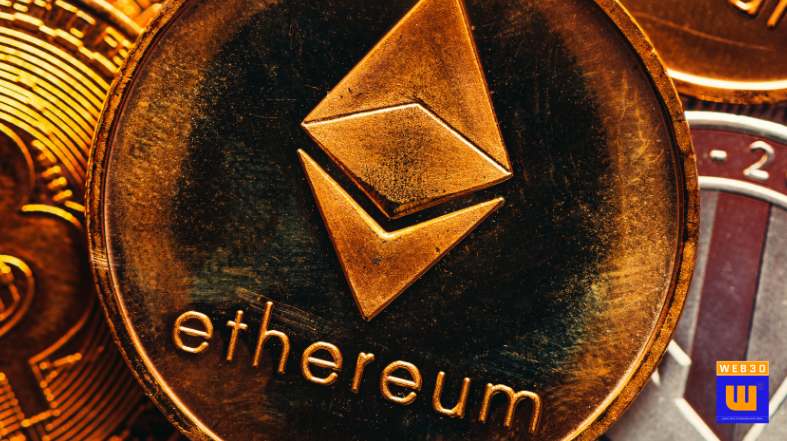Ethereum’s price has hardly changed despite the US Securities and Exchange Commission (SEC) approving spot Ether exchange-traded funds (ETFs) for faster launch in the United States.
Before the SEC’s historic approval, Ether fell by 3.4% and then rebounded by around 5%. Currently, Ether is trading at $3,701 with a 24-hour trading volume of $47.5 billion, according to CoinMarketCap.
On May 23, the SEC approved 19b-4 applications from financial giants like VanEck, BlackRock, Fidelity, Grayscale, Franklin Templeton, ARK 21Shares, Invesco Galaxy, and Bitwise. This crucial approval allows these firms to list and trade spot Ether ETFs on their respective exchanges.
Hashdex was the only ETF issuer that did not receive regulatory approval on that day.
However, ETF issuers still have hurdles to clear. They need the SEC’s approval for their S-1 registration statements before spot Ether ETFs can start trading, which could take weeks or months.
“Typically, the SEC takes several weeks to a few months to review and provide feedback on S-1 registrations. This period involves a detailed examination of the filings to ensure compliance with regulatory requirements. So, in the worst case, we are looking at the end of summer,” said Georgii Verbitskii, founder of TYMIO.
The SEC‘s directive on May 20 to speed up 19b-4 filings surprised many, especially with the removal of staking from several applications. This unexpected move has led to speculation about the reasons behind the SEC’s swift action.
Some industry insiders suggest political pressure was a factor. Before the approval, a bipartisan group of lawmakers urged the SEC to approve these ETFs, arguing that the precedent set by Bitcoin ETFs should extend to Ethereum.
Does SEC’s ETF approval mean ETH is no longer a security?
The approval of Ethereum ETFs is seen by industry experts as a subtle but significant indication from the SEC that Ether might not be considered a security.
“These are commodities-based trust shares, so the SEC, by approving these, is explicitly saying they’re not going to go after Ether as a security,” said Bloomberg ETF analyst James Seyffart on the Bankless podcast.
Digital asset lawyer Justin Browder agrees, saying that if Ether ETFs get S-1 approval—the final step for trading—then the “debate is over: ETH is not a security.”
However, other market players like Verbitskii believe the SEC might still target ETH.
“The approval of an Ethereum ETF by the SEC does not mean they no longer see Ethereum as a security. It simply means the ETF meets regulatory standards for trading and investor protection (or at least they think so),” Verbitskii said.
Finance lawyer Scott Johnsson also pointed out that the SEC did not confirm Ether’s non-security status in its approval order, stating that it “completely sidestepped” the issue.
An official statement from the SEC and some of its Commissioners is expected soon, which may provide further clarity on this matter.
The approval of spot Ether ETFs comes four and a half months after the SEC approved several spot Bitcoin ETF applications on January 10, marking an industry first. Following the latest announcement, industry experts have expressed expectations for further growth.
Sumit Gupta, co-founder of CoinDCX, noted that Bitcoin’s price rose significantly after its ETF started trading in January, suggesting that a spot Ether ETF could drive a rally of up to 60%.
“Bitcoin rose to over $73,000 from $42,000 in the two weeks after the ETF started trading on January 11. Data suggests that 10 US spot Bitcoin ETFs absorbed 548,556 BTC worth $36 billion in four months. Similarly, it is anticipated that a spot Ether (ETH) ETF could drive a rally of as much as 60%,” Gupta said.
Lennix Lai, OKX’s chief commercial officer, highlighted the potential for substantial institutional demand for spot Ethereum ETFs, envisioning passive capital inflow from institutional players of around $300-500 million in the first week.
He emphasized the relevance of this development, noting that Ethereum’s design as a Proof-of-Stake (PoS) token could attract significant institutional interest.
“In addition, Ethereum offers more utilities than many realize. It’s the go-to product for participating in DeFi products, such as staking. As such, the approval of the ETH ETF could potentially attract more users to engage with Web3 products,” Lai concluded.
However, some experts caution that the price of Ether might not immediately surge despite the landmark approval.
Asal Alizade, co-founder of Blocklogica, explained that the main market shift occurred with the approval of Bitcoin ETFs, which facilitated the entry of larger cash flow from traditional investment institutions. Thus, the Ether ETF approval might not lead to a dramatic market change but could gradually influence EVM-based assets and create minor trends in the crypto market.
Benjamin Charbit, CEO of Darewise Entertainment, added that the ETF approval had likely been priced in for some time, similar to the Bitcoin ETF approval earlier in the year. “I would not see it as a negative sign; on the contrary, it shows a form of maturity similar to what has happened for decades in traditional finance (TradFi),” said Charbit.
Summary Review: The SEC’s approval of spot Ether ETFs marks a significant step for the cryptocurrency market. However, the impact on Ether’s price remains uncertain, with experts divided on whether it will lead to immediate gains or more gradual changes in the market.
Disclaimer: Remember that nothing in this article and everything under the responsibility of Web30 News should be interpreted as financial advice. The information provided is for entertainment and educational purposes only. Investing in cryptocurrency involves inherent risks and potential investors should be aware that capital is at risk and returns are never guaranteed. It is imperative that you conduct thorough research and consult with a qualified financial advisor before making any investment decision.





